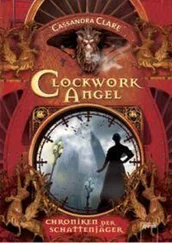As they watched the dryad’s daughter begin her journey south, the traveler shed his cloak and folded it across the grey horse’s saddle. “You dryads are fortunate to have three hearts,” he said. “Men have but one, and it can never leave us.”
“Then it should be carefully tended,” the dryad said, and placed his hand in hers. Beneath the traveler’s skin a new life stirred, life that had grown a dryad’s heart. “For it must last through all the seasons of the world.”


PINIONS
The Authors
Born in the Pacific Northwest in 1979, Catherynne M. Valente is the author of the Orphan’s Tales series, as well as The Labyrinth , Yume no Hon: The Book of Dreams , The Grass-Cutting Sword , and five books of poetry, Music of a Proto-Suicide , Apocrypha, The Descent of Inanna, Oracles and A Guide to Folktales in Fragile Dialects . She is the winner of the Tiptree Award and the Million Writers Award and has been nominated for the Pushcart Prize, the Rhysling and Spectrum Awards, and the World Fantasy Award. She currently lives in Northeastern Ohio with her partner and two dogs. She says, “I began writing ‘The City of Blind Delight’ after reading several medieval legends of the land of Cockaigne. I was fascinated by the details, such as the roasted calf and the houses of cakes. How do you live in the land of plenty? What is desire there? Add to this that trains are one of my constant obsessions, and you have Gris and his ticket. I want these places to be real, I want them to have always been real, as real as any other city on the railroad, and as accessible.”
David Sandner has published in Realms of Fantasy , Asimov’s , Weird Tales , the Mammoth Book of Sorcerer’s Tales , and Baseball Fantastic , among other odd gatherings of words. He is Associate Professor of English at Cal State Fullerton, where his purview is Romanticism, children’s literature and the fantastic. He wrote The Fantastic Sublime and edited Fantastic Literature: A Critical Reader . He wrote “Old Foss is the Name of His Cat” in honor of the complete nonsense of Edward Lear who, he hopes, needs no introduction but is, nevertheless, too often in the shadow of that other famous nonsense poet of the Victorian era. Like Mr. Lear, David knows what it is to be friends with a cat, what it means to fear losing someone, and what it is to be unable to stop contemplating the ever-present mystery of impossible things and other such realities.
John Grant is author of some seventy books, of which about twenty-five are fiction, including The Far-Enough Window , The World , and The Dragons of Manhattan . His “book-length fiction” Dragonhenge , illustrated by Bob Eggleton, was shortlisted for a Hugo Award in 2003; its successor was The Stardragons . His first story collection, Take No Prisoners , appeared in 2004. He is editor of the recent anthology New Writings in the Fantastic . Among his nonfictions are The Encyclopedia of Fantasy (with John Clute), Masters of Animation , and The Encyclopedia of Walt Disney’s Animated Characters , as well as the recent Discarded Science and Corrupted Science ; he is currently working on a companion volume to these two, Bogus Science , on a book about film noir , and on “a cute book for kids about a velociraptor.” His powerful mosaic novel Leaving Fortusa is to be published by Norilana in the fall of 2008.
As John Grant he has received two Hugo Awards, the World Fantasy Award and a number of other international literary awards. Under his real name, Paul Barnett, he has earned for his editorial work a Chesley Award and a nomination for the World Fantasy Award. He says that, like many of his stories, “‘All the Little Gods We Are’ owes its genesis to one of those little fancies that pass through one’s head a dozen times a day and are mostly forgotten before they’ve even come out the other ear, as it were. In this instance, I had an image of dialing a phone number and being answered by myself. Who knows how many times that notion must have been used by fantasy writers? Whatever, the rest of the story just flowed from there.”
After growing up in Texas, Santiago, Kansas, Mexico City, and Indiana, Cat Rambo wandered through Baltimore, Bloomington, and Brooklyn before beating the B curse to settle in the Pacific Northwest. “I grew up in South Bend, Indiana, which does feature a ‘Dew Drop Inn Restaurant Lounge’ on Lafayette Street that was once just the Dew Drop Inn. I was always amused by the expansion, and when I was accosted in a Seattle coffee shop by a woman who thought I was her blind date, the two concepts interacted with each other and became ‘The Dew Drop Coffee Lounge.’” Other stories have appeared in Asimov’s , Weird Tales , and Strange Horizons , among other places. Her collaboration with Jeff VanderMeer, The Surgeon’s Tale and Other Stories , is available from her website at http://www.kittywumpus.net. Yes, it is her real name.
Leah Bobet lives in Toronto, where she works in Canada’s oldest science fiction bookstore and has just completed a degree in linguistics. Her fiction has appeared recently in Strange Horizons , The Mammoth Book of Extreme Fantasy , and On Spec , and her poetry has been nominated for the Rhysling and Pushcart Prizes. She says, “‘Bell, Book, and Candle’ came from hearing a regular phrase, an ignorable phrase sidewise, and the way the world tilts at an angle when you realize it might have meant something different all along.” She is currently writing a novel about a girl with bee wings and a boy who grew up underground.
Michael J. DeLuca has the utmost respect for prophets. Sometimes he wishes he’d been one, but he was never quite crazy enough to make it happen. “I carried the ideas and images that compose this story around in my head for a very long time before anything came of it. When I saw that stark church in the desert, I was just a kid, and a very different person by the time I came across the angel. What finally brought it all together was the riff of a Bob Dylan song called ‘Wicked Messenger.’ If you’d heard that song with those things in your head, you’d have written this story too. Or so I’d like to think.”
Michael asserts that fiction is a compromise. Read more of his compromises in Interfictions , or on his blog at michaeljdeluca.com.
Laird Barron’s work has appeared in places such as The Magazine of Fantasy & Science Fiction , SCIFICTION , Inferno: New Tales of Terror and the Supernatural , and The Del Rey Book of Science Fiction and Fantasy . It has also been reprinted in numerous year’s best anthologies. His debut collection, The Imago Sequence , was recently published by Night Shade. Mr. Barron is an expatriate Alaskan currently at large in Washington State. He confides, “The core horrific conceit of this piece originates from a nightmare as recounted by a relative who served in the Marine Corps and who apparently survived many a hedonistic adventure while abroad. The relative’s name is withheld to protect the guilty, of course.”
Читать дальше














